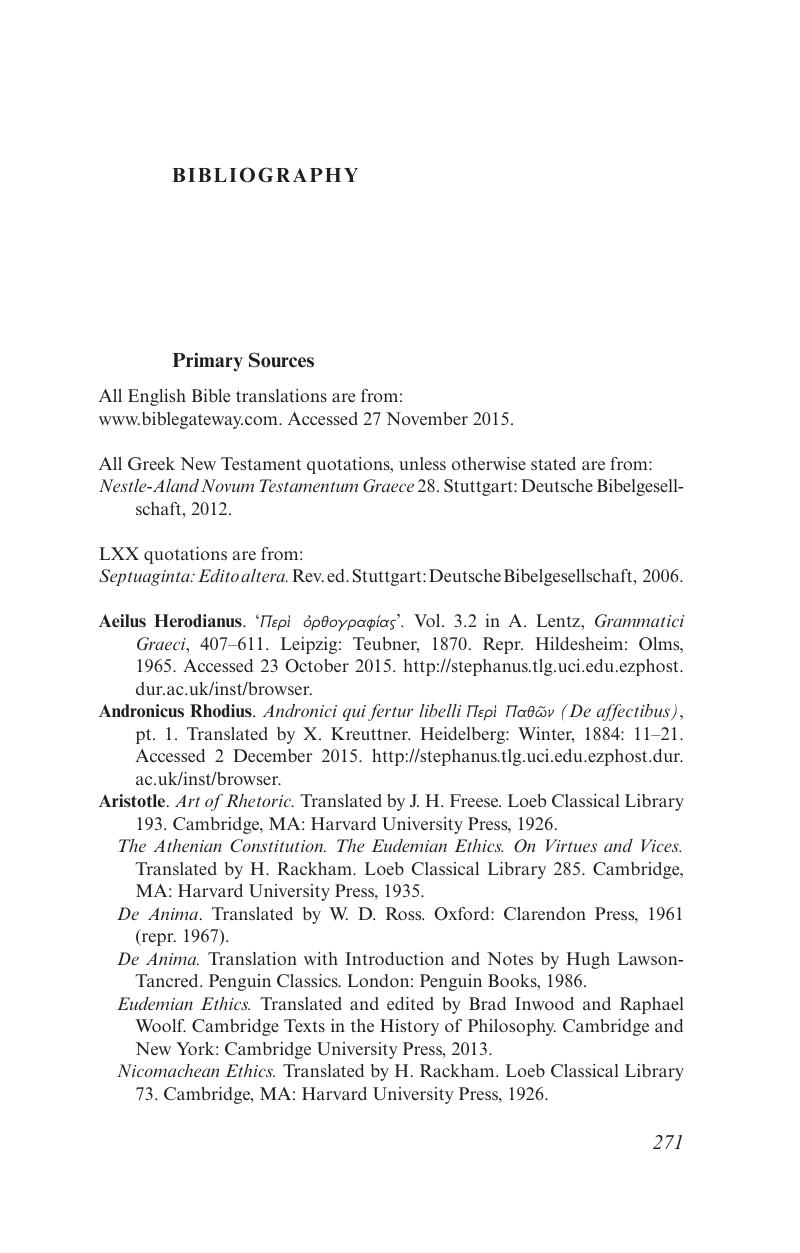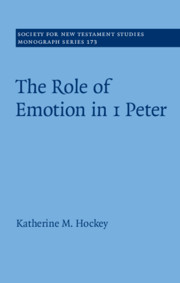Book contents
- The Role of Emotion in 1 Peter
- Society for New Testament Studies
- The Role of Emotion in 1 Peter
- Copyright page
- Contents
- Table
- Preface
- Abbreviations
- Part I Introductory Matters
- Part II Emotions in Antiquity
- Part III The Present Experience
- Part IV Future Expectation
- Appendix Chronology of the Leading Stoics
- Bibliography
- Ancient Sources Index
- Subject Index
- References
Bibliography
Published online by Cambridge University Press: 25 January 2019
- The Role of Emotion in 1 Peter
- Society for New Testament Studies
- The Role of Emotion in 1 Peter
- Copyright page
- Contents
- Table
- Preface
- Abbreviations
- Part I Introductory Matters
- Part II Emotions in Antiquity
- Part III The Present Experience
- Part IV Future Expectation
- Appendix Chronology of the Leading Stoics
- Bibliography
- Ancient Sources Index
- Subject Index
- References
Summary

- Type
- Chapter
- Information
- The Role of Emotion in 1 Peter , pp. 271 - 282Publisher: Cambridge University PressPrint publication year: 2019



